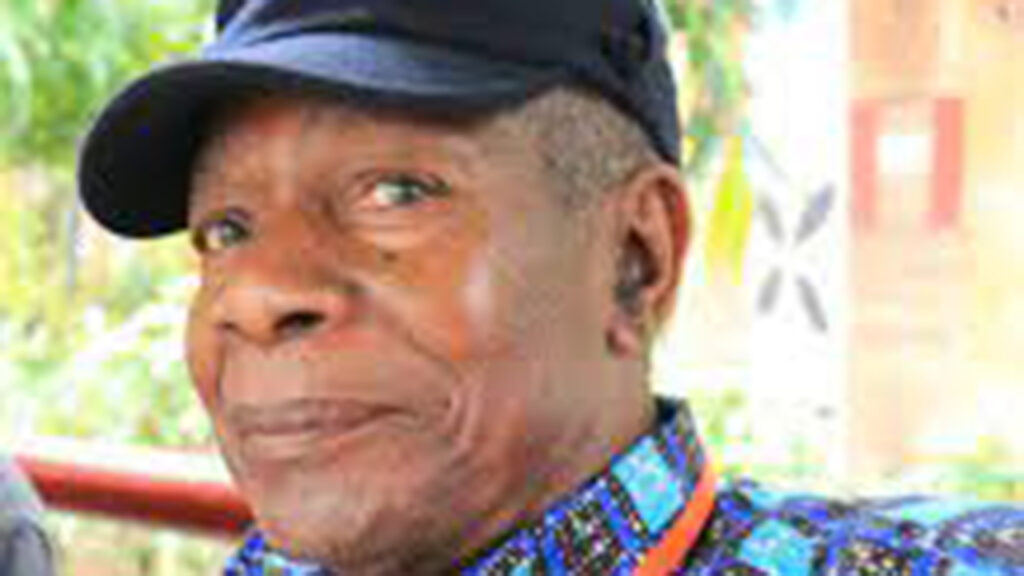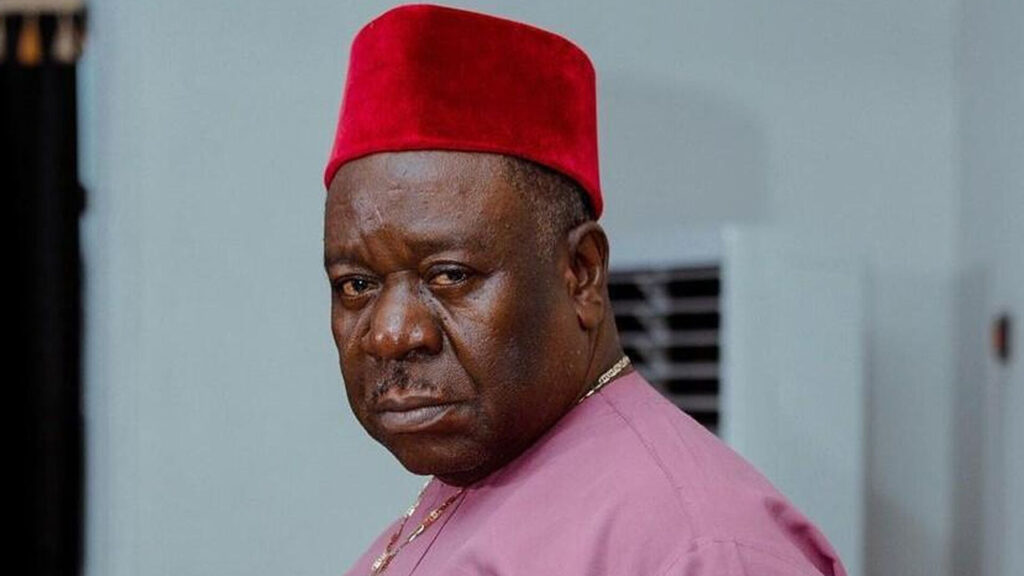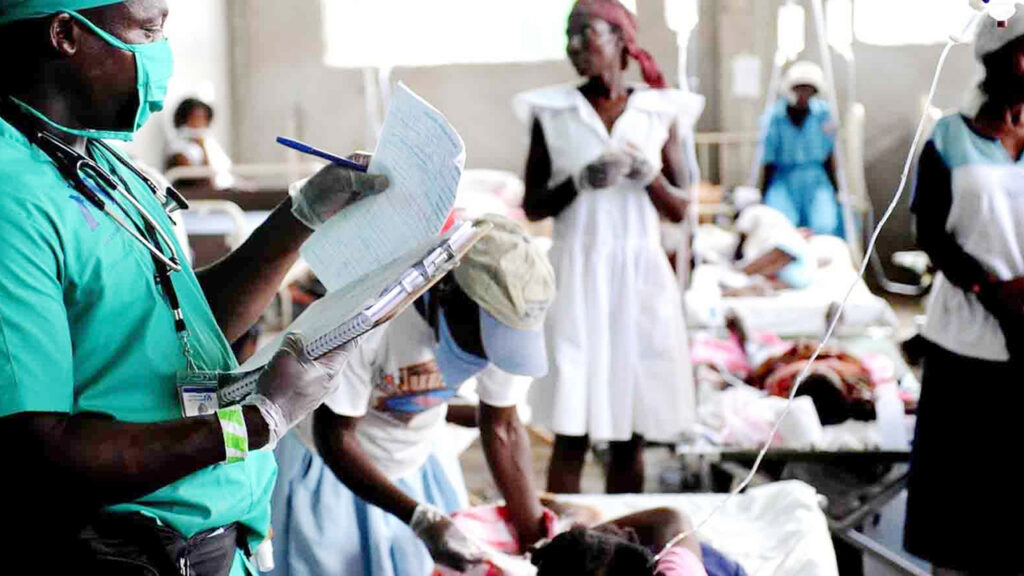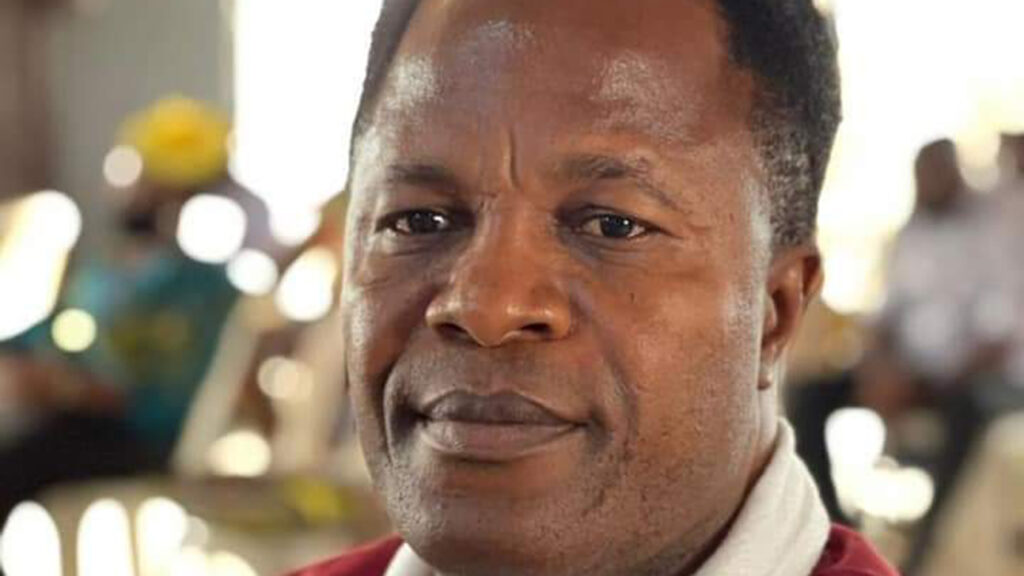
Since the beginning of this century, there has been a global tendency to abolish corporal punishment to challenge the old method of reforming children’s misbehaviour. This tendency is supported by the contemporary call for protection of human rights, including the right to security and decent human treatment as well as child rights. To a large extent, school authorities, particularly teachers have been restrained from punishing students for unruly behaviour. Stakeholders in the education sector, including the teachers listed possible consequences of not punishing the children for bad behaviour they exhibit in schools and at home. CHIJIOKE IREMEKA writes.
“Our students are currently taking advantage of the fact that the school has stopped all forms of corporal punishment in Lagos State. They are now misbehaving in an uncontrollable manner. Some of them are more daring since the management of the school sacked one of us for spanking a disobeying child,” a teacher in a FESTAC school where the 43-year-old teacher was sacked, Mrs Shola Agidigan lamented.
The instructor, who was reacting to the bourgeoning consequences of banning corporal punishment in Lagos, said: “the most heartbreaking part of the policy is that teachers should not be seen with a cane within the school premises, let alone using it to beat any child for the purpose of punishing the child for any act of indiscipline.”
Agidigan was practically begging parents to help the teachers to instil discipline in their children at home since the teachers could no longer do so efficiently, a departure from the original system of entrusting the children in the care of their teachers.
Quoting the United Nations International Children’s Emergency Fund (UNICEF), she defined corporal punishment as an action intended to cause physical pain or discomfort, but no injuries.
Agidigan, who opined that the teachers should be given the free hand to do their work without fear, said: “I don’t know how we are going to do this. The children are now uncontrollably annoying. I will come to school and start shouting from morning till the close of school and when I get home I will be having a headache.
“You can’t even correct such students by asking them to kneel down and raise their hands because the Lagos government will tell you that their hands are too feeble to do so as it may lead to one bone disease or the other which we didn’t have when we were disciplined in such manner years back. I don’t know where they got such policy. Or is this coming from the pit of hell to make Africans lose their long-held enviable morals and courtesy?
“We are imitating the Western world where children in the schools would abuse and slap their teachers without any form of punishment. Is that the society that we are sponsoring and craving for? If we go this path, a lot of things will go wrong, which we have started seeing in the school, and our society will never be the same again. This attitude of don’t beat, don’t punish my child is crazy. The children trained with this carrot and stick in those days, were and are still better of than those that we have now.
“I’m not saying that children should be beaten and killed or given any form of physical wound or permanent injuries, no, a child should be properly disciplined to know there is consequences for every wrong action. This will help them grow up. This cost me so much as I have to spend the time I have for teaching to monitor and be shouting on top of my voice.
“Whether we like it or not, the sight of that cane alone, even when you didn’t use it on the children, helps them to comport and behave themselves within the bounds of dignity and discipline. There is a difference between correction and abuse. You spank a child in love and not in dislike. It’s tough for us the teachers because they feel we (teachers) can only talk and will not beat. Even when you talk to them, they won’t pay attention to what you are saying.
“What I do currently is to put these children to check by taking the noisiest ones close to my table and sit with them. I have to lose concentration in preparing my class lesson notes while I am busy telling somebody to sit down, come here and sit by my side, which still doesn’t stop them from being boisterous as usual. The moment I return them to their original positions, they will start jumping up and down. Let’s wait and see.
“It is worst for those of us in primary One, Two and Three. So, our hands are tied, help us to disciple these children at home for we have little or nothing to do about this. Nobody wants to lose his or her source of livelihood just as Mrs Lizzy Jones that was sacked two weeks ago.
“It was painful because this teacher has put in 24 years of meritorious service of this school. I wonder why she has to be dismissed like that. It’s sad. We are going to kill this society by the way we go about learning all manner of rubbish from the West.”

Recently at the scientific conference of the Association of Resident Doctors (ARD), Federal Neuro-psychiatric Hospital, Yaba, the Lagos State Commissioner for Education, Folashade Adefisayo said the state government had stopped all forms of corporal punishment in its public schools.
She said the action was necessary to avert the ugly incident where corporal punishment was meted out to a student and resulted in the death of the student. She confirmed the existence of a policy in Lagos prohibiting teachers from imposing corporal punishment on students and pupils in schools.
Speaking on the topic, Corporal Punishment in the Modern African Setting, with the Sub-theme: Examining the Scientific Evidence Behind Corporal Punishment,’ Adefisayo said there were alternative ways to discipline and correct children being adopted in the schools, though she didn’t mention any of them.
The President of ARD, Samuel Aladejare, described corporal punishment as one of the current burning issues in society, as it was prevalent in schools, homes and even workplaces. She called for urgent action to put an end to all forms of corporal punishment in society.

UNICEF said about 85 per cent of school children between the ages of one and 14 experience violent discipline in schools with nearly one in every three children experiencing severe action.
UNICEF’s Chief of Education, Saadhna Panday-Soobrayan, disclosed this in Abuja at a two-day National Awareness Creation Meeting on Ending Corporal Punishment In Schools, organised by the Teachers Registration Council of Nigeria (TRCN) in collaboration with UNICEF.
Panday-Soobrayan described the discussion on ending corporal punishment in schools as difficult and heart-breaking, stating that the presence of participants at the meeting was a testament to Nigeria’s determination to uphold every child’s right to safety, and well-being as well as quality and inclusive education.
“Recently, we confronted the harrowing reality that 85 per cent of children between the ages of one and 14 in Nigeria experience violent discipline, with nearly one in three children experiencing severe physical punishment. This is a staggering statistic that demands urgent action, indicative of a crisis.
“Much of this violent discipline takes place in the form of corporal punishment in the very institutions that are entrusted to keep children safe, develop respect for human rights and prepare them for life in a society that promotes understanding peace, and conflict resolution through dialogue.”
According to her, the persistence of the practice contradicts Nigeria’s National Policy on Safety, Security and Violence-Free Schools which commits to zero tolerance to any threat to the security of life and property in schools.
Panday-Soobrayan also noted that the practice is stalling Nigeria’s progress toward achieving SDG 3 to ensure good health and well-being, SDG 4 on equitable and inclusive quality education and Target 16.2 (to end abuse, exploitation, trafficking and all forms of violence against and torture of children).
The UNICEF official said: “Physical punishment causes not only pain, sadness, fear, shame and anger, but is also linked with children’s hyper-reactivity to stress, changes in brain structure and function, and overloaded nervous, cardiovascular, and nutritional systems. Spanking, just like more severe abuse, is linked to atypical brain function. The damage is not only acute, affecting their learning in the current moment, but also chronic.
“A large body of research links physical punishment with long-term disability or death; mental ill-health; impaired cognitive and socio-emotional development; school dropout and poorer academic and occupational outcomes; increased anti-social behaviour, aggression and criminal behaviour in adulthood; and damaged relationships through its intergenerational transmission.”
On the contrary, Dr Ovie Erukawe was punished corporally and beaten yet she became the best in the medical school in her time and now a consultant surgeon. She recalled: “In those days, when your mother looks at you, you have already gotten the message, a virtue that is grossly missing among the children of this generation, pampered and ‘spoilt’ by their parents due to ‘don’t beat my child’s syndrome brought to the country by some idle women.
“The Bible says ‘Spare the rod and spoil the child’. I didn’t spare the rod and I’m reaping the benefits now. If you don’t discipline him or her as a child, you will find it most difficult to do so when the child would have been fully grown up. I will tell you that my children were among the top three performing students in their respective schools. One just concluded her Medicine and Surgery study and now majoring in Neurosurgery in America. The boy who just finished his first degree in Architecture at Covenant University with First Class and is set for his master’s degree abroad was beaten by my husband and I. The last one is still in secondary school.
“So where did we get those lies that when you punish a child physically with the sole aim of making the child a better person, the child would not develop well or suffer one permanent deformity or the other? It’s a lie from the pit of hell. My children are all outspoken without any form of timidity, low self-esteem or mental imbalance.
“Our society is going crazy today because nobody wants to take the bull by the horn and punish the misbehaving children. I understand that children react differently to issues. Some of them require conversation and you get them back on track but some you have to give severe punishment to win them over after you have spoken but to no avail. I will tell you that no normal parent would intentionally want to kill his or her loved child (ren).
“So you have to give mild and subtle punishment. You cannot say because car kills, then you ban the use of car in the country or somebody ate poisoned food and die, then you stop eating. It doesn’t make sense to me. We have learnt a lot of rubbish from the West, let’s learn how the west has managed their economies effectively, built infrastructure and has good justice system that have helped their society. Let’s stop destroying the virtues that have moulded us (Africa) into people of dignity and sound morals.”
Mr. Sunday Bayo said: “As a child trained in Nigeria, I will tell you that those beatings, shouting and spanking by my parents, especially my mum when I did something wrong, were actually what made me what I’m today. Of course, there was no bodily inquiry, but the pains you undergo would make you not want to be beaten again and make you to behave well.
“When you remember how you would be flogged when you misbehave or take something that doesn’t belong to you without permission, it would make you behave within the bounds of acceptable character and decorum. As a child, I remember going to my father’s room to take a bottle of Maltex on his table. I uncorked the malt, drank small part of it and filled the bottle up with water and then corked it back. When my father saw it, he didn’t say anything. I did not know he was planning for me. He later called me to help him hold one of our goats in the goat’s head. I didn’t know it was a ploy to lure me into the herd to be dealt with.
“Innocently, I entered to catch the goat but he went straight and bolted the door to the herd and descended on me. He asked who drank the Maltex and I told him I was the one. He asked why I refilled it with water and started flogging me. It was a memorable beating such that since then, I stopped taking anything that doesn’t belong to me without permission.
“I would say that punishing a child when he repeatedly does wrong after being talked to has a way of stopping certain abnormal behaviours among children, using my experience as an example. Also, some people wouldn’t want to be beaten, they prefer being talked to. By and large, we are Africans, we need well-behaved children, therefore, sparing the rod has a way of destroying the child. This is the time to bend these children when they are still flexible. There is the age and time they would attain, you will not be able to bend them again.”
A mother of six, Mrs Cynthia Adegoroye, who travelled to the United States of America (U.S.A.) to take care of her newly born granddaughter, before taking up a job as a child-minder in a crèche, described the children in the countries that we are imitating are boisterous and opposite to Nigerian children.
According to Adegoroye, the children she is taking care of in US are fond of slapping and beating her daily.
“In a number of cases, they have slapped me but there is nothing I could do as the U.S society says no corporal punishment for any child. For us to have this replicated in this part of the world is suicidal because anything Africans learn from the West, they do it with utmost vigour. I don’t see our society being healthy after adopting this. Nigeria is facing serious moral nose-dive and this will definitely not auger well with our society.
“While I’m not saying that the children should be abused, there should be something that would caution the children. I’m an African and we have our decent culture. Social media is actually dealing a dead blow on our children’s values and norms. The bible says spare the rod and spoil the child.”
It was learnt that Nigerians who live abroad still use corporal punishment to correct and shape the character of their children over there, yet those at home are seeking to do away with it.
“What they want is to see our children behave in the manner of the children in the Western world. Could you imagine your children calling a police on you for spanking them? Imagine your children telling their parents that they hate them.
“There are certain things fear would not allow the African child to do but these are the things we are gradually bringing them up to start doing with the ban on corporal punishment in the schools. So, when the children misbehave, we will give them a pat on their back in the spirit of children’s rights and freedom?” Adegoroye asked.
Though there is ban on corporal punishment in Lagos schools, yet it’s lawful in schools under article 295 (4) of the Criminal Code (South), which states that ‘a schoolmaster or a person acting as a schoolmaster’ is automatically considered as having been entrusted with ‘authority for correction, including the power to determine in what cases correction ought to be inflicted.’
The Guardian learnt that the Article 55 of the Penal Code (North) states: “Nothing is an offence, which does not amount to the infliction of grievous hurt upon any person and which is done by a schoolmaster for the purpose of correcting a child under eighteen years of age entrusted to his charge.”
Article 295 of the Criminal Code (South) states: “A blow or other force, not in any case extending to a wound or grievous harm, may be justified for the purpose of correction as follows: (1) a father or mother may correct his or her legitimate or illegitimate child, being under sixteen years of age, for misconduct or disobedience to any lawful command;
“…(4) a father or mother or guardian, or a person acting as a guardian, may delegate to any person he or she entrusts permanently or temporarily with the governance or custody of his or her child or ward all his or her own authority for correction, including the power to determine in what cases correction ought to be inflicted; and such a delegation shall be presumed, except in so far as it may be expressly withheld, in the case of a schoolmaster or a person acting as a schoolmaster, in respect of a child or ward.”

However, the Minister of Education, Mallam Adamu Adamu, endorsed the plan and roadmap for ending corporal punishment in schools in line with the Child’s Rights Act passed into law in 2003, protecting children’s right to a life free of violence.
Adamu said there were evidence indicating the corporal punishment in schools has impacted negatively on attendance, learning and outcomes.
“In Nigeria, studies have indicated that corporal punishment is one of the key factors militating against retention and transition of pupils in our schools, which have huge implications on the educational system and achievement of the Sustainable Development Goals 4.”
The Registrar of Teachers Registration Council of Nigeria, (TRCN), Prof. Josiah Ajiboye said there had been a paradigm shift globally from corporal punishment in schools because of its effect on pupils, adding that such practices had been proven to be ineffective, dangerous and an unacceptable method of controlling and maintaining behaviour and discipline.
To Ajiboye, corporal punishment brings negative rather than positive consequences in the whole process of teaching and learning.
“It tends to increase child aggression and antisocial behaviour, lower intellectual achievements, enhance poor quality of parent/teacher-student relation and cause mental health problems,” he said.
Background
The sponsors of ban on corporal punishment in Lagos schools and the campaign for it abolition nationwide argued that corporal punishment of children breaches their rights to respect for human dignity and physical integrity and to equal protection under the law.
The rights are recognised by the Committee on the Rights of the Child and other treaty bodies, as well as by the UN Secretary General’s Study on Violence Against Children, as a highly significant issue both for asserting children’s status as rights holders and for the prevention of all forms of violence.
In June 2006, the Committee on the Rights of the Child adopted General Comment No. 8 on “The right of the child to protection from corporal punishment and other cruel or degrading forms of punishment” which emphasises the immediate obligation on states parties to prohibit all corporal punishment of children, including within the home.
Other treaty bodies and regional human rights mechanisms have condemned corporal punishment. In October 2006, the report of the UN Secretary General’s Study on Violence Against Children was submitted to the General Assembly. It recommended universal prohibition of all corporal punishment as a matter of priority.
The Global Initiative to End All Corporal Punishment of Children has regularly briefed the Committee on the Rights of the Child on this issue since 2002, and since 2004 has similarly briefed the Committee Against Torture, the Committee on the Elimination of Discrimination Against Women, the Committee on Economic, Social and Cultural Rights and the Human Rights Committee, and in 2011 began briefing the Committee on the Rights of Persons with Disabilities.
There has been progress across all regions in challenging this ‘common form of violence’ against children, just as many states have ignored recommendations to prohibit all corporal punishment.











